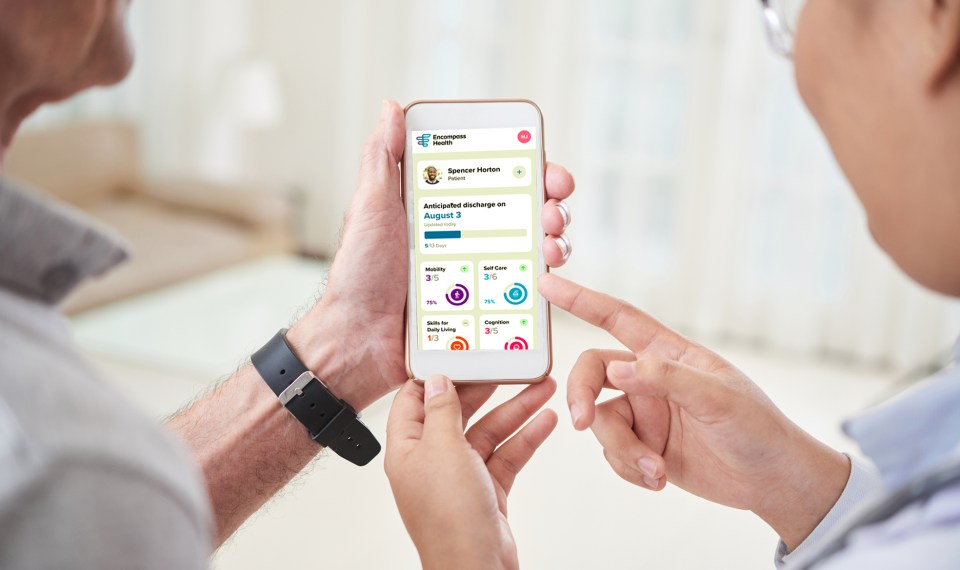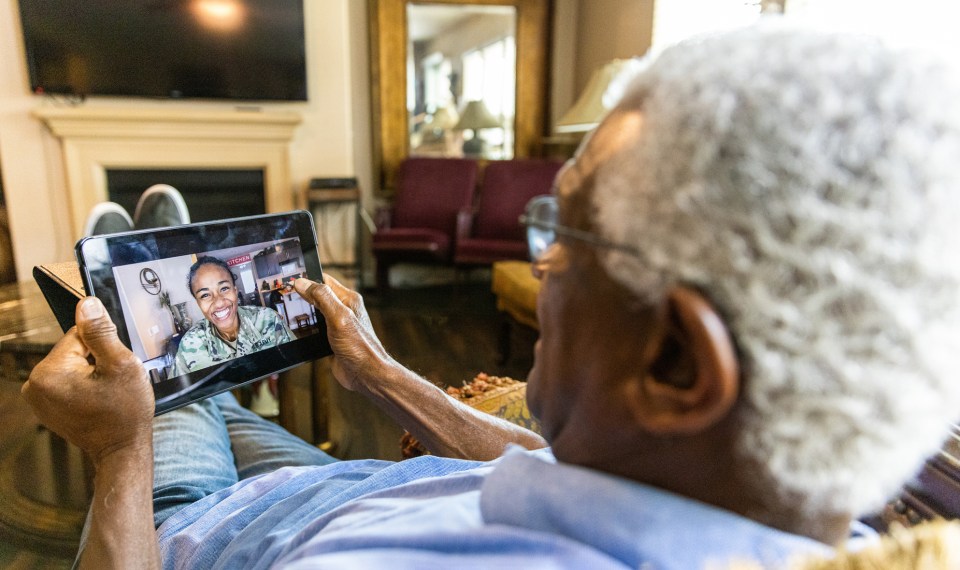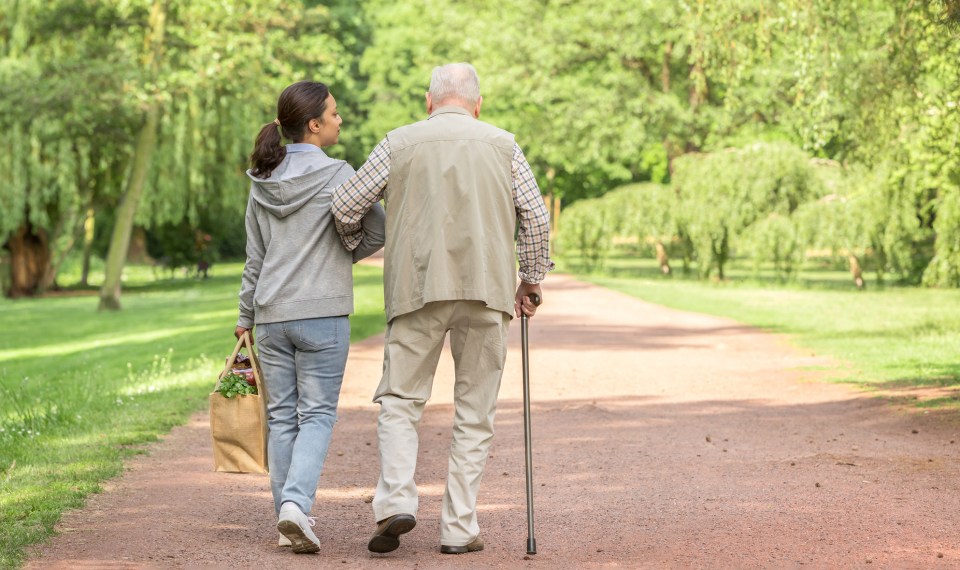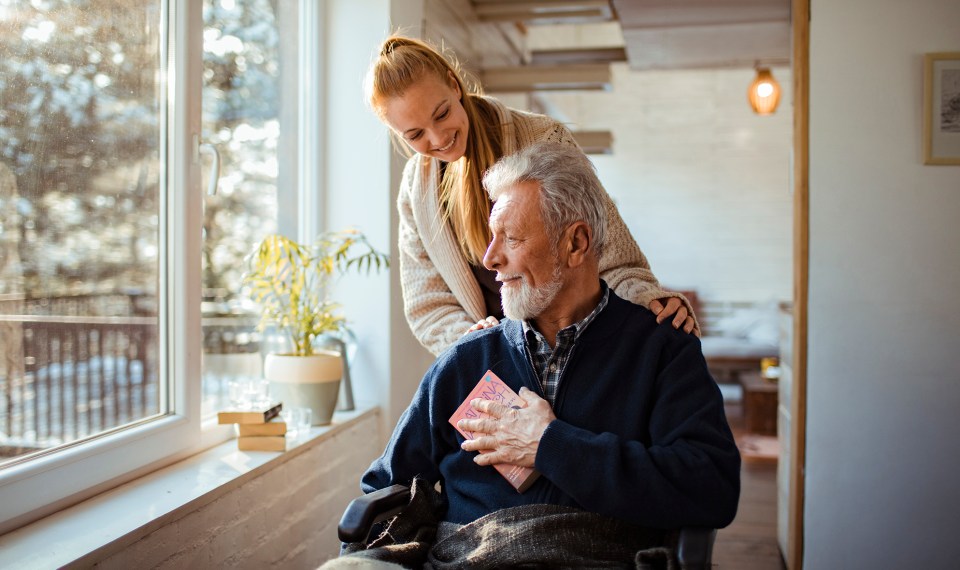Inpatient rehabilitation is all about recovering and reaching your goals, but often those successes and little changes are hard to track, especially for a loved one who is watching from a distance.
Now, Encompass Health has an app for that. The MyEHC Caregiver App was recently made available to all Encompass Health rehabilitation hospital patients and their caregivers. Those who download the app have access to it during their stay and for two weeks after they leave the rehabilitation hospital.
Troy DeDecker, president of Encompass Health’s Central region, said the idea came up while visiting a hospital.
“We were having a discussion about how we could keep families informed throughout a patient’s stay,” he said. “In the age of social media and smart phones, we all want and expect instant updates. With the new caregiver app, families now have 24/7 access to their loved one’s care plans and progress toward their goals.”
In addition to tracking your rehabilitation goals, the app also contains your discharge date and instructions along with any home exercises that might be beneficial after discharge.
Why an App?
As a patient in a rehabilitation hospital, you will receive three hours of therapy a day, five days a week. The therapy you receive depends on your individual goals set by you and your care team. The typical length of stay is around two weeks. During that time, your care team documents your progress within Encompass Health’s electronic medical record platform, ACE IT.
The app is a secure and accessible method for patients to see their progress in real time. They can also invite their loved ones to join, so they can understand the patient’s care plan even if they’re not present during therapy, especially during the COVID-19 pandemic. Though the app was in the works well before the pandemic, Eileen Thayer, vice president of clinical transformation, said it’s even more important now.
“People haven’t been able to visit, and this has helped families see what is happening in the patient’s progression toward meeting their goals in self-care, mobility, cognition and skills of daily living” she said. “It gives them an easy-to-read graphic display; it shows what the patient’s goals are and where they are.”
The app is available free of charge to all patients and those they invite and can be downloaded during their stay and for 14 days afterward. It can also be downloaded and viewed on traditional web browsers and desktops.
How it Works
At admission, a member of your care team will provide you with instructions so you and any of your loved ones that you’d like to invite can follow along with your progress by using the app. Your progress will be tracked in four primary areas:
- Mobility, such as how well you can make transitions or go from sitting to standing
- Self-care, such as bathing and getting dressed
- Skills for daily living, such as meal preparation and laundry
- Cognition, such as memory and problem solving
“It’s very easy to navigate,” Thayer said. “You’ll log in, and you’ll see those four primary areas. The language is easy to understand, and you can really see their progress from the time they are admitted to discharge.”
The app will be continuously improved and enhanced to meet patient and caregiver needs.
The Benefits to Patients and Caregivers
The caregiver app was first piloted in two Encompass Health hospitals in March, with another two hospitals added this summer. It was rolled out companywide in November. Though it’s only been in use for a short time, hospitals are already reporting successes from patients and their caregivers.
Clinicians noted how being able to see their success in the app actually motivated patients to work harder in therapy, especially knowing that family members were seeing their progress too.
“We had a patient who hadn’t been very participatory in therapy,” one care team reported. “After signing up for the app, therapy participation increased once they were able to track their progress. It seemed to help with engagement and progress.”
While the app will not replace face-to-face conversations with patients and caregivers, it will be another tool to engage patients and their loved ones in the care they are receiving and the progress they have made.
“They can all really see the progression over time,” Thayer said. “It’s a good motivator. They can look back and see that maybe when they got to the hospital, they needed maximum assistance with ambulation. Then, they were able to walk with a device and the distance they are able to walk is improving daily. That’s big progress that they might not really notice without looking at previous days for comparison.”
The content of this site is for informational purposes only and should not be taken as professional medical advice. Always seek the advice of your physician or other qualified healthcare provider with any questions you may have regarding any medical conditions or treatments.



